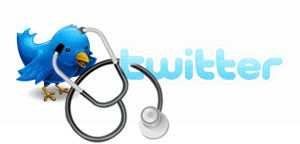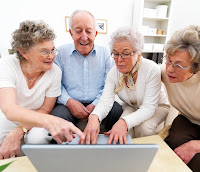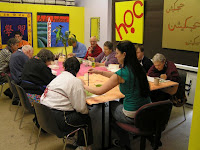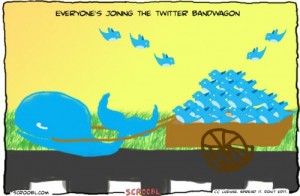 If you own a company but are not on social media, then you are hurting your business. If you are in health care but not on social media, or on social media but not very active, then you, too, are hurting your business. The world is changing and doing so rapidly. Social media, review sites and smartphones are all part of the new technology shaping the world today. And if you are not on that train, then…well, you are being left behind.
If you own a company but are not on social media, then you are hurting your business. If you are in health care but not on social media, or on social media but not very active, then you, too, are hurting your business. The world is changing and doing so rapidly. Social media, review sites and smartphones are all part of the new technology shaping the world today. And if you are not on that train, then…well, you are being left behind.
Mass marketing through advertising is the old way, and if you don’t have a few million bucks to spend, then you are just not reaching people with that medium. And even for big companies that have that kind of money—the Coca Colas, Fords, and Starbucks of the world—social media is a HUGE part of their marketing plan. Why? Because social media is where the people be hangin’.
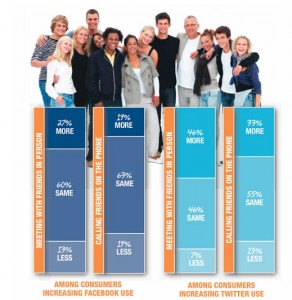 As a result, today’s marketing requires person-to-person interaction. People want to engage with companies, professionals and artists—they want personal attention, as personal attention builds trust. Why would anybody today want to do business with you, or listen to what you have to say, if you don’t give them personal attention, but your competitor does? Listen, economics are tight all over and people want to spend their money most effectively. The way people, today, feel most confident in doing so is through personal attention and interaction.
As a result, today’s marketing requires person-to-person interaction. People want to engage with companies, professionals and artists—they want personal attention, as personal attention builds trust. Why would anybody today want to do business with you, or listen to what you have to say, if you don’t give them personal attention, but your competitor does? Listen, economics are tight all over and people want to spend their money most effectively. The way people, today, feel most confident in doing so is through personal attention and interaction.
Enter social media—Twitter, Facebook, YouTube—sources anybody can use to connect to companies, celebrities, journalists, athletes, teachers, professionals—you name it. And that includes you. Website magazine recently reported that people who engage with companies on social media spend 20-40% more money with those companies than do other customers. That’s huge!
But not just businesses—anybody with an inspired message can use social media to influence others. Be it a political campaign (just ask President Barack Obama, a Twitter master), a charitable cause, or a world changing idea (like Changing the Way the World Thinks About Health™), nothing has been more important in leveling the playing field for marketing and message-spreading.
Health care providers absolutely need to be on social media, specifically Twitter. There are currently 200 million active users on Twitter—two hundred million! And Twitter is now one of the top ten visited websites on the Internet. Duh! You want to reach people? You want to educate them? You’ve got to be on Twitter. And you’ve got to learn to use it right. There are ways to master Twitter, and then there is just inefficiency. That’s why it’s not uncommon to hear someone say, “I don’t like Twitter.” Yeah, you haven’t learned to use it in the most fun and effective way yet. Believe me, learn that and your perceptions will change.
Watch the video below to hear how people are using Twitter to spread their message effectively (don’t let the first 55 seconds fool you…there’s lots of visuals to stimulate your mind). If you are in any health field whatsoever—chiropractic, medicine, psychology, personal training, physical therapy, nutrition, acupuncture, yoga, Reiki, or any other—you absolutely must watch this video. And then check out my book, How to Win Friends and Influence People (on Twitter), and you will learn the ins-and-outs of becoming a Twitter ★SuperStar★.
